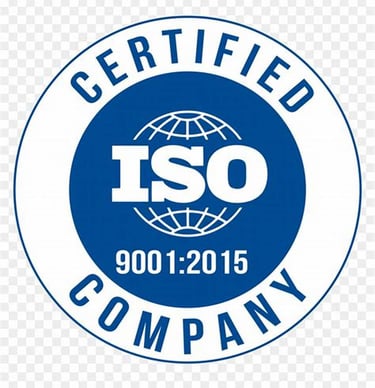
Sustainability
is at our heart

By using what would be wasted in developed countries to create healthy nutritious food, productive capacity remains in Less Developed Countries that would otherwise be used to grow food (e.g., soy) for export.
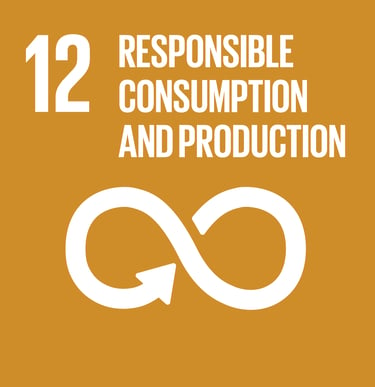

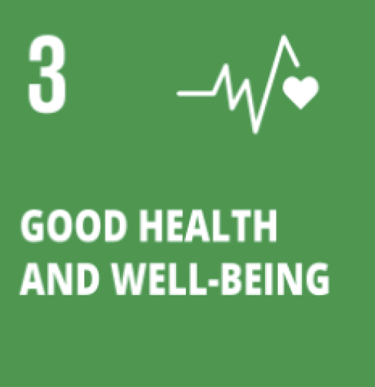

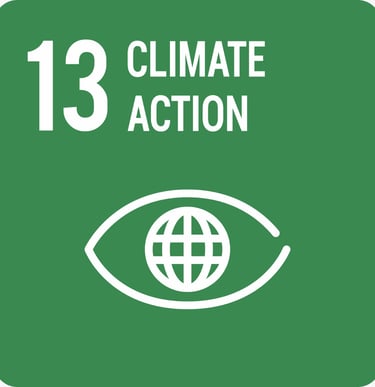

By displacing ingredients with plant-based products that are rich in dietary fibre, macro nutrients and nutraceuticals.
By displacing ingredients 'grown-for-use', often in distant countries, with ingredients made from what would otherwise be wasted, grown near to consumption.
By delivering a '4X-win' of avoiding product grown-for use, reducing long-distance transport, improving productivity and reducing biomass left to rot that will produce methane.
Driving Change: Our Impact on UN Sustainability Goals

We exist to serve our '6 Ps'
Planters
Those who grow our food (farmers)
Producers
Those who make our food (food manufacturers)
People
We who eat the food (consumers)
Planet
The world we share
Partners
The people who work for
and with us
Patrons
The investors who allow us to deliver
We help manufacturers deliver
sustainable
food
We provide sustainable, hypoallergenic ingredients with low-food miles that drive down Scope 3 CO₂. Our products are vegan, but we work with food producers to offer consumers a choice between vegan, vegetarian and 'hybrid' foods that taste as good as alternatives but are better for the planet and healthier for the consumer.
Hybrid Products
By displacing 20% of meat with Prota (which creates marginal CO2), food producers can produce meat products with >19% less CO2 but with the same taste and mouthfeel. In 2017, the U.N. Food and Agriculture Organization (FAO) estimated that total annual emissions from beef production, including agricultural production emissions plus land-use change, were about 3 billion tonnes of carbon dioxide equivalent in 2010. That means emissions from beef production in 2010 were roughly on par with those of India, and about 7% of total global greenhouse gas emissions that year.
We are not anti-meat, we want to give manufacturers of meat-based foods the ability to reduce their Scope 3 emissions whilst still delivering the products consumers love.
Vegetarian Products
By using our Prota as a base, food manufacturers can deliver low-cost, highly-nutritious vegan sauces with improved protein content. and lower food-miles. Hybridization is something we see could be of value in vegetarian and vegan products, for instance by mixing our Prota and Fiba products with mycelium to achieve different combinations of taste, mouthfeel and nutritional content.
Bakery Products
By displacing up to 20% of wheat flour with (effectively zero CO₂) Fiba, bakers can deliver a sough dough type taste without fermentation, or supplement moist cakes such as carrot cake or rum cake.
Low CO₂ Pet Food
By displacing up to 20% of wheat flour with (effectively zero CO₂) Fiba, bakers can deliver a sough dough type taste without fermentation, or supplement moist cakes such as carrot cake or rum cake.
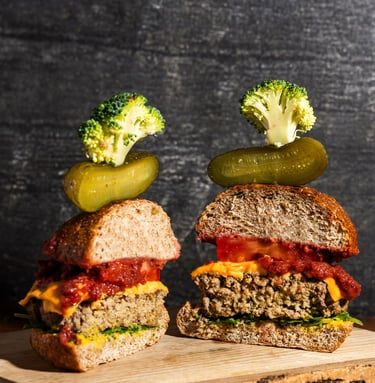

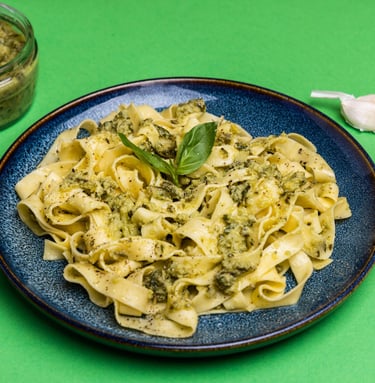

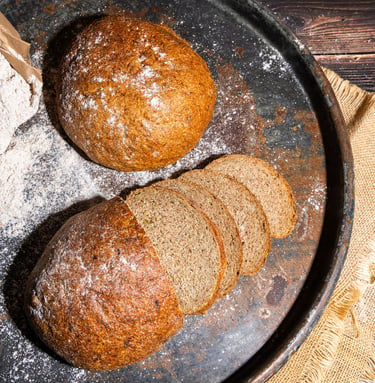

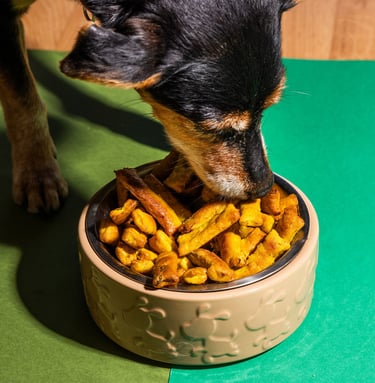

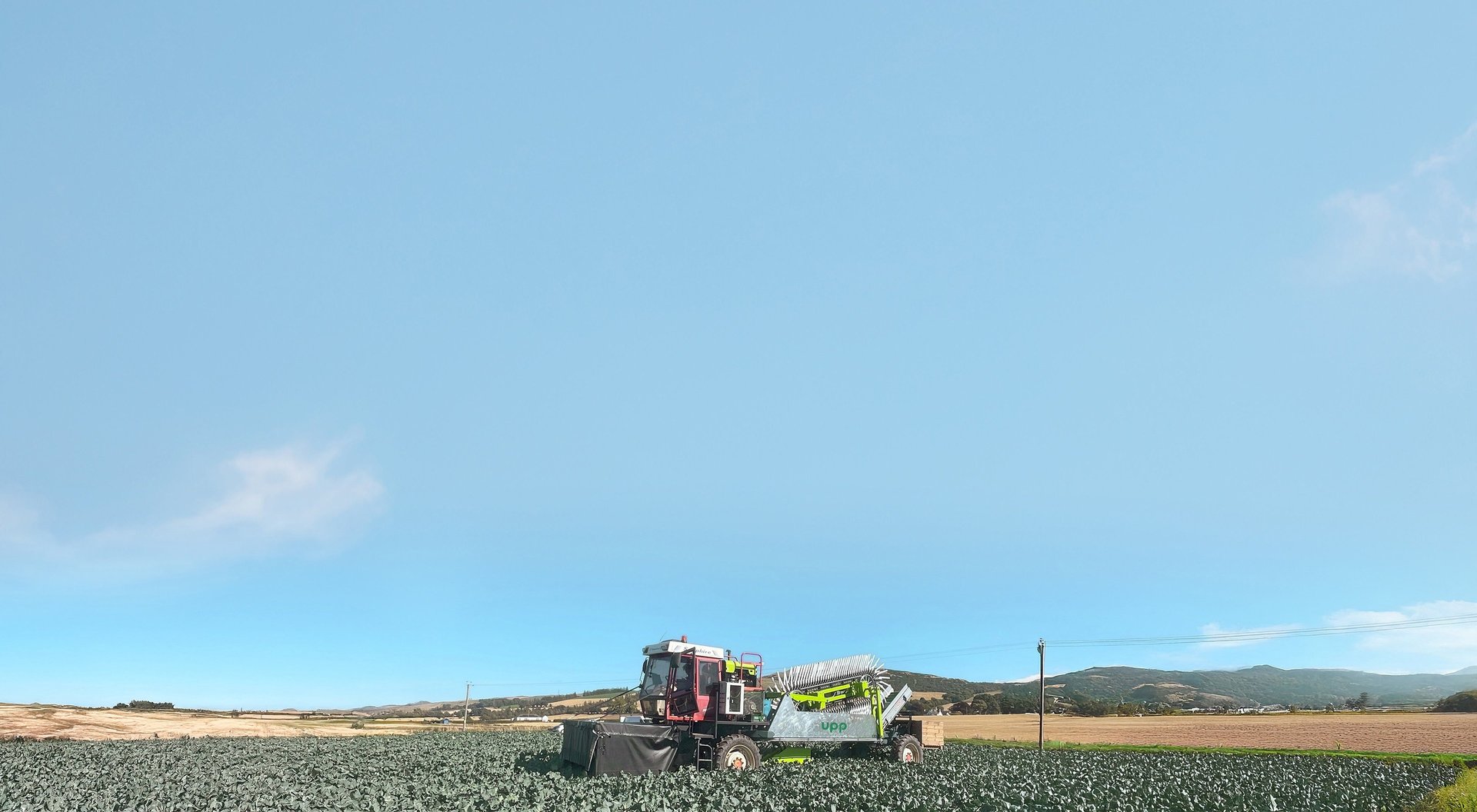
We have a patented Automated Selective Harvester ('Harvesta') that transforms the economics of broccoli harvest.
Currently broccoli is harvested by hand, making it an expensive vegetable due to the high cost of harvest, partly as a field will require several passes by a large team of farm workers. We change that, and in addition we allow the nutritious stalk to be taken off the field so we can process it using our patent-filed process to produce our Prota, Fiba, Necta and Ova. By making harvest less costly; reducing crop lost due to insufficient labour; and sharing the value from the side-stream, we improve the financial sustainability of farmers.
In addition, we use machine learning approaches (a subset of Artificial Intelligence) to select which heads to cut on each pass, which means we image every plant on each pass.
As a result, we rapidly build up a unique picture of the field that we are turning in to a data portal ('Intellia') that will give insight to support farmers in extending 'precision agriculture'. Using the 'big data' we generate, we aim to supply farmers intelligence they need but do not have, allowing insight that will help them to optimise their harvest activity and manage their crop and land better, further improving efficiency.
By using crop that would otherwise be waste to displace that grown for use (e.g., soy) we reduce CO₂.
By displacing food grown far away (e.g., South America) with food grown locally, we reduce food miles (and hence CO2). By using what would otherwise be left to rot we reduce methane emission. Finally, by gathering data to help farmers be more efficient, we will reduce carbon intensity. We allow a '4X-win' in terms of Green House Gas ('GHG') reduction.
We exist to solve two of the world’s food related challenges: Where the sustainable alternatives to animal-derived protein will come from, and addressing the challenge of disappearing farm labour and the resulting food security issues.
We have had an independent LCA performed by the UK Agri-Tech Centre. Our products came out better than the products we intend to displace, however the scope excluded the impact of methane emission reduction as this is yet to be characterised. This will further improve our LCA performance. In addition, the LCA results will allow us to further improve our process, so we expect enhanced results when we next have an independent LCA. Our latest LCA can be made available under NDA to partners during Due Diligence.
An independent LCA has validated our credentials
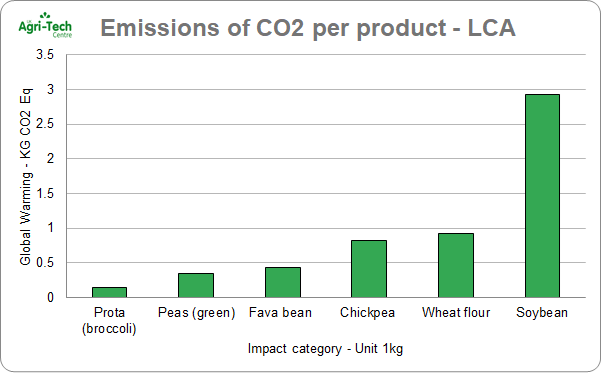

Get in touch
Keep updated
© 2024. All rights reserved.
+44 1952 327 357
welcome@upp.farm
Upcycled Plant Power ('UPP') Limited Company number: 14171122
VAT Number: 428 2222 17
Registered address:
Agri-Tech Centre
Poultry Drive
Edgmond, Newport
Shropshire
United Kingdom
TF10 8JZ
Connect with us
A list of our trademarks can be found here

